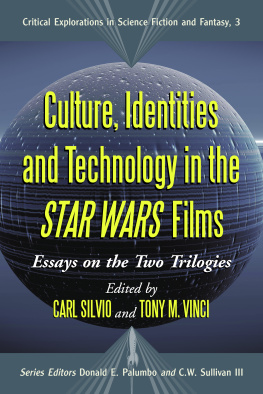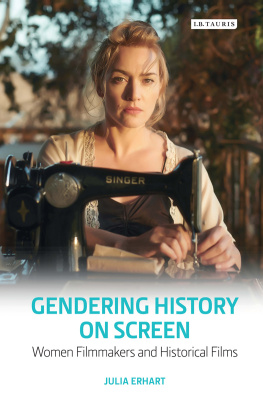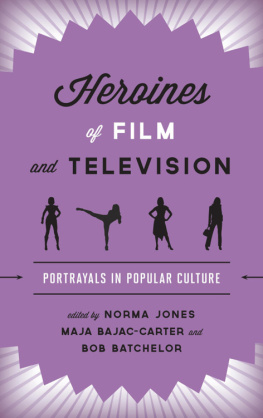The Misogynistic Backlash Against Women-Strong Films
This book is an exploration of the political struggle for visibility engendered by the growing number of women-centered popular films and a critical analysis of the intensifying misogynistic backlash that have accompanied such advances in the depiction of women on screen.
The book draws from a variety of theoretical and methodological tools to provide critical cultural analysis and alternative readings of women-strong films and their important role in society. The authors engage with popular culture and the popular press, media studies, and rhetorical criticism examining new modes of communication while providing historical context to help make sense of these oppositional readings. The book includes case studies on Mad Max: Fury Road, Wonder Woman, Atomic Blonde, Star Wars, and Ghostbusters to analyze critical responses, mens-rights activist boycotting campaigns, online harassment, and the political economy that precede and accompany the creation and presentation of these films.
This is an accessible and timely analysis of the rise of feminist-friendly and women- led films and the inevitable counterculture of misogyny. It is suitable for students and researchers in Media and Communication Studies, Gender and Media, and Cultural Studies.
Dana Schowalter is Associate Professor of Communication Studies at Western Oregon University. Her research interests include feminist media studies, feminist political economy, and global philanthropy. Her work has been published in Neoliberalism in the Media, Women and Language, and Communication Review.
Shannon Stevens, Associate Professor of Journalism in the Department of English at California State University, Stanislaus, advises the student newspaper. A former journalist, she is a feminist rhetorician who researches media, popular culture, and policy. The Rhetorical Significance of Gojira: Equipment for Living Through Trauma appeared in The Atomic Bomb in Japanese Cinema: Critical Essays (2015).
Daniel L. Horvath is a Part-Time Faculty in Communication Studies at California State University, Stanislaus. His research focuses on the way representation warps around critical categories of gender, race, class, etc. He published research on Michael Moore documentaries in Michael Moore and the Rhetoric of Documentary (2015) and on the rhetorical conditions of whistleblowing as a public act of parrhesia in Whistleblowing, Communication and Consequences (2021).
Interdisciplinary Research in Gender
Intersectional Feminist Readings of Comics
Interpreting Gender in Graphic Narratives
Edited by Sandra Cox
Caffie Greene and Black Women Activists
Unsung Women of the Black Liberation Movement
Kofi-Charu Nat Turner
Forced Migration in the Feminist Imagination
Transcultural Movements
Anna Ball
The Misogynistic Backlash Against Women-Strong Films
Dana Schowalter, Shannon Stevens, and Daniel L. Horvath
Feminist Existentialism, Biopolitics, and Critical Phenomenology in a Time of Bad Health
Talia Welsh
The Postworld In-Between Utopia and Dystopia
Intersectional, Feminist, and Non-Binary Approaches in 21st Century Speculative Literature and Culture
Edited by Tomasz Fisiak and Katarzyna Ostalska
https://www.routledge.com/Interdisciplinary-Research-in-Gender/book-series/IRG
First published 2022
by Routledge
4 Park Square, Milton Park, Abingdon, Oxon OX14 4RN
and by Routledge
605 Third Avenue, New York, NY 10158
Routledge is an imprint of the Taylor & Francis Group, an informa business
2022 Dana Schowalter, Shannon Stevens, and Daniel L. Horvath
The right of Dana Schowalter, Shannon Stevens, and Daniel L. Horvath to be identified as authors of this work has been asserted by them in accordance with sections 77 and 78 of the Copyright, Designs and Patents Act 1988.
All rights reserved. No part of this book may be reprinted or reproduced or utilised in any form or by any electronic, mechanical, or other means, now known or hereafter invented, including photocopying and recording, or in any information storage or retrieval system, without permission in writing from the publishers.
Trademark notice: Product or corporate names may be trademarks or registered trademarks, and are used only for identification and explanation without intent to infringe.
British Library Cataloguing-in-Publication Data
A catalogue record for this book is available from the British Library
Library of Congress Cataloging-in-Publication Data
A catalog record has been requested for this book
ISBN: 978-0-367-26201-3 (hbk)
ISBN: 978-1-032-12310-3 (pbk)
ISBN: 978-0-429-29197-5 (ebk)
DOI: 10.4324/9780429291975
Typeset in Sabon
by codeMantra
To the girls who want to grow up to be superheroes, and the women who already are
Contents
Acknowledgments
1 Introduction: womens cultural production engenders misogyny A historical overview
2 Misogyny and the missive of mediocrity: disparaging women-strong films in movie reviews
3 The economics of misogyny and the surprising success of woman-strong films
4 None of us asked for this: Ghostbusters, online harassment, and mechanized misogyny
5 Why You Should Not Go See Mad Max: Feminist Road: parasitic film criticism and (post) apocalyptic fears of feminist propaganda
6 Star Wars (toxic) nostalgia and the looming end of man
7 Atomic Blonde and her critics: disciplining of a pre-patriarchal feminine archetype
8 Conclusion: counter-publics, patriarchal (reel)realism, and a call to action
Acknowledgments
Dana Schowalter: First and foremost, I am eternally grateful to my coauthors for their support through the many iterations of this project and, more generally, for years of showing me the power of feminist friendship.
I would like to thank Western Oregon Universitys Faculty Development Fund for their generous financial support of this project and to the faculty union for continuing to advocate for this important resource. And, of course, I thank my colleagues, mentors, and friends for teaching me and learning with me.
Writing the chapter of this book that includes research on the nearly insurmountable pressures facing mothers who work outside the home was among the most emotionally challenging aspects of this writing experience for me. That research so perfectly encapsulates my own experience of strivingand often failingto achieve balance as a mother working in academia. Watching Harvey thrive and knowing the often-invisible work of motherhood has made him into the confident, caring person he is makes me so proud. In turn, I hope he and Jeremy are proud of this work, despite the ways it pulled me away from the family, for the ways it nourishes my feminist self.
And I thank my Oregon and Wisconsin families for providing the support I needed, even when I didnt have the words to say I needed help. I am forever in your debt.
Shannon Stevens: I thank my co-authors on this project whowith their brilliance, good humor, and endless patiencehave driven me to find the best in myself as I strive to match their insights and productivity. Their bravery kept me going as we together sifted through mountains of unfettered misogyny. The joyous times we spent together writing, watching movies, and laughing with our families are among my most precious memories.







